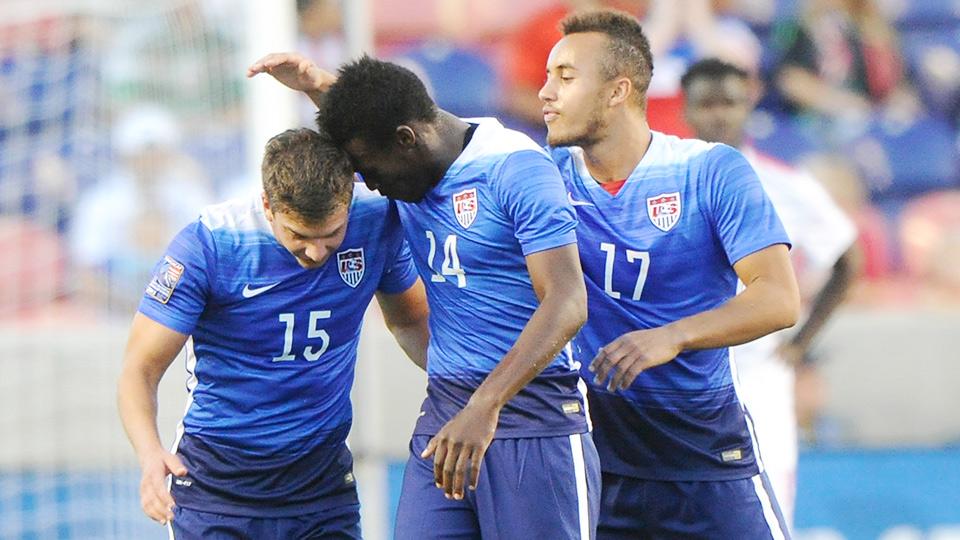Facing the prospect of failing to qualify for the 2016 Olympics, the U.S. U-23 Men's National Team (MNT) saved face on Tuesday night in Salt Lake City
Facing the prospect of failing to qualify for the 2016 Olympics, the U.S. U-23 Men’s National Team (MNT) saved face on Tuesday night in Salt Lake City defeating Canada, 2-0, in the third place match at the 2015 CONCACAF Men’s Olympic Qualifying Championship.
The victory advances the U-23 MNT to a home and away series against Colombia (finished second at the 2015 South American Youth Football Championship) with the winner qualifying for the 2016 Olympics. The two matches will be held in March 2016 at a location in Rio de Janeiro.
Tuesday’s victory over Canada saved U.S. Soccer from what could have been an even worse October. The next generation of players failing to qualify for a major tournament does not bode well for the future of the program, nor does it reflect positively of how things are currently being run. Given the current state of the aging senior team, the U-23 MNT not only needs to qualify but needs players to gain the vital experience needed for them to step up and eventually fill the shoes of the older players on the senior team.
That was the hope four years ago when the U-23 MNT failed to qualify for the 2012 London Olympics. That team didn’t advance out of the group stage in CONCACAF qualifying and there are no players from that squad who are now consistent starters for the senior team. The only players on the squad who have been regulars with the senior team are Mix Diskerud, Brek Shea, and Bill Hamid. Other players have been called in, but no one has taken advantage of the opportunity and established themselves as a mainstay in the senior national team. You even get the sense that Diskerud and Shea are only ever called up because there is no one else. Hamid does have potential, but he hasn’t reached the level of current and aging U.S. goalkeepers Tim Howard, Brad Guzan, and even Nick Rimando.
It should be noted that qualifying for, and even winning the Olympics is no guarantee for future success at the international level. Nigeria won gold in 1996 and Cameroon won gold in 2000, and neither country really emerged as a dominant international side. The last time Germany qualified for the Olympics was in 1988, and yet they have still won a World Cup, finished second place once, and finished third place twice since their last Olympic outing.
However, for the U.S., a strong U-23 MNT group is a good indication of how U.S. Soccer will perform going forward. In 2000, the U.S. finished fourth at the Sydney Olympics. That team had Landon Donovan and Tim Howard, who both went on to be arguably the finest players in their position for the United States senior team.
The only other time the U.S. qualified for the Olympics in this century was in 2008. The squad did not advance out of the group stage but featured Michael Bradley, Maurice Edu, Stuart Holden, Charlie Davies, Benny Feilhaber, Robbie Rodgers, and Sacha Kljestan. This is a very strong group of players, who have all had their fair share of important performances for the senior team in addition to forging solid professional careers.
This brings us back to the current U-23 MNT. There is a lot to be excited about with this group. Jordan Morris has proved he can perform and score at any level. Jerome Kiesewetter looks like the pacey and fearless winger the U.S. has always needed. Center backs Matt Miazga and Cameron Carter-Vickers have had their ups and downs, but both have shown a lot of potential at a very young age. Emerson Hyndman looks to have a bright future in the midfield and hope is still high for Gedion Zelalem.
Failed qualification does not spell doom the future of U.S. Soccer, but it’s hard to argue against history.
